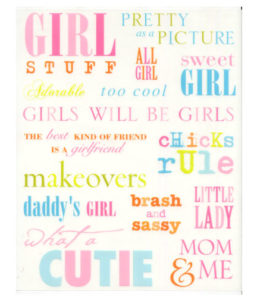Helping Your Daughter Navigate Girl World
If you have a daughter, it’s a good bet that at one time or another she has come home in tears due to social problems. She may have been the target of exclusion or taunting, perhaps initiated by her former best friend, or pushed out of a circle of friends she has known since preschool. Perhaps she wasn’t invited to a party everyone is talking about. She doesn’t understand why she isn’t “popular.” Chances are you are seeing these problems emerging in elementary school—particularly in the second and third grades—and intensifying toward the onset of middle school.
Are these problems inevitable? Is there a way to protect our girls from mean girl behavior? While not inevitable, these problems are understandable, given how girls are socialized. From early on, girls learn to be relationally focused. Their toys—baby dolls, doll houses, Barbies, stuffed animals, play kitchens—teach connection and care-taking. Girls learn that being nice, polite, accepted, liked, and pretty take priority over being direct, strong, original, capable, and confident.
For girls, expressing anger and frustration directly means risking rejection. Appearing overly confident or assertive is perceived as snobbery and brashness. Girls seen as a threat to a close friendship, tight social circle, or social approval may be blocked through under-the-radar behaviors , such as snubbing and rumor spreading, which don’t require direct confrontation and other more overtly impolite behaviors.
Of course, not every girl engages in these behaviors, feels threatened by other girls, or is touched by these dynamics. Girls who don’t value or need social approval and have a relational style that is more open, flexible and less focused on finding a best friend or tight social circle are often can steer clear of relational challenges. However, if your daughter has bumped up against them, here is what you can do:
Connect:Your daughter needs to feel heard, understood, and supported. Connect with her by empathizing with her and validating her feelings.Share stories about your own friendship challenges and how you resolved or healed from them. Your daughter may also benefit from a connection to an informal mentor, a girl several years older who can act as a guide, coach, or role model. Young girls look up to older girls, particularly “cool” teens with their own stories about girl friendships and fall-outs. Find an older cousin, neighbor, family friend, member of your religious community, or babysitter who can spend some time hanging out with your daughter. Girls may be more apt to talk to and receive advice from a hip teenager. You may also need to connect your daughter with girls outside of her class or school.Connecting her to girls with shared interests —such as art, music, sports, or dance—will expand her circle of support and shift her away from choosing friends based on social status and popularity.
Teach: Teach your daughter about true friendship—that it doesn’t include on-again off-again behavior, exclusion, and hurtful treatment. Girls who are the targets of mean girls often rationalize— she isn’t always like this, sometimes she’s nice to me. Also let her know that some friendships don’t last forever, thatsometimes they need to be ended. Tell her that there are all kinds of friendships:best friends, friends you spend time with but don’t tell secrets to, friends you spend a lot of time with, and friends you see only occasionally. This will help her feel better, particularly if she is without a best friend or tight social circle, and teach her more flexibility in connecting with others and broadening her social circle. It is also important to teach her the reasons behind the meanness—that they have nothing to do with her. This will help her from internalizing it.
Build: Build your daughter’s self-esteem so it is less dependent on social approval and relationships, which are subject to fluctuation. The best way to do so is through assuming new challenges, learning and mastering skills, accomplishing goals, helping others. Give your daughter these opportunities. Help her build her internal resources by creating a toolbox she can draw from during difficult times. It may include positive self-talk, journaling, asking for help, yoga, and other relaxation techniques, along with these musts: the abilities to communicate and assert herself so that she can state needs and feelings directly, set boundaries, and stick up for herself.She should also have problem-solving skills that will help her identify problems, generate solutions, and make good choices.Conflict resolution tools will enable her to resolve the unavoidable misunderstandings and disagreements that arise within friendships. Girls, in particular, need to know that conflicts are a normal part of any relationship, not automatic grounds for abandonment, rejection, and retaliation.





